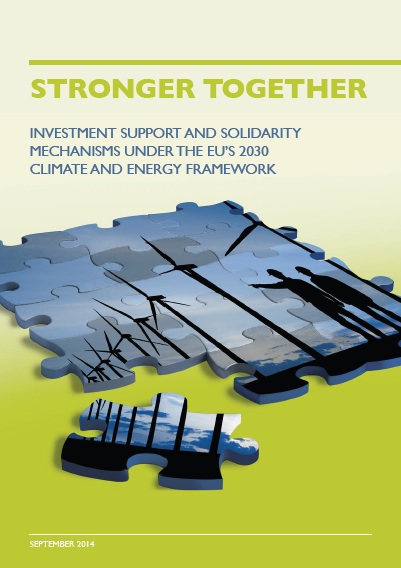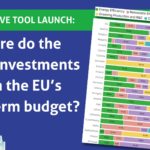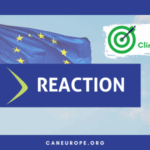Investment support and solidarity mechanisms under the EU’s 2030 climate and energy framework
The solidarity and investment mechanisms, operating as part of the EU’s 2020 climate and energy package, do not adequately support energy sector decarbonisation in low income Member States, reveals a new analysis developed jointly by CAN Europe, Greenpeace and WWF.
The report Stronger Together shows that the effective financial support mechanisms for lower income EU Member States is as equally important as addressing the failure of the current tools to drive energy sector decarbonisation. These lessons must be learnt now, so as to avoid a repetition of such mistakes in the 2030 EU climate and energy framework.
CAN Europe, Greenpeace and WWF and make the following recommendations for an overhaul of the EU’s investment and solidarity mechanisms in the context of the 2030 climate and energy framework:
- The mechanism of transitional free allocation to the power sector in Central and Eastern Europe (Article 10c) should not continue and should be replaced by a central EU fund overseen by the European Investment Bank (EIB). Support should be focused on small and medium-scale investments in renewable energy and energy efficiency.
- If the current system of ETS allowance redistribution among Member States is retained, additional auctioning revenues for lower income Member States must only be used to increase energy efficiency and diversify energy mixes through the development of renewable energy.
- Financial assistance for investments in coal generation (refurbishment, modernisation, life extension, biomass co-firing with coal) must be strictly forbidden.
- Post-2020 financial support for lower income Member States must be conditional on these countries pursuing policies designed to attract renewable energy investment, overcome barriers to energy efficiency, phase out fossil fuel subsidies as well as the full and timely implementation of the revised Directives that will constitute the EU’s 2030 framework.
Download: Stronger Together




